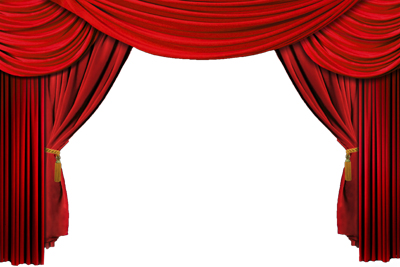News
Marketing is theater
Your business is show business, says one consultant.
June 19, 2008
This article originally published in Retail Customer Experience magazine, Jul-Aug 2008. Click here to download a free PDF version.

It's not easy to deliver a knock-out performance every day, but since you're already in the business, polish up your production and prepare for the "longest-running show in history." Here are some ideas for revolutionizing the way you view your business.
1. Tour your theater
Marketing begins by taking an objective look around your store and determining what makes your surroundings special and different from your competitors'.
First impressions last. Instead of entering through the employees-only entrance, walk through the front door of your store and see what your customers see when they enter. Become aware of how all your senses are affected. Do the sounds, smells and sights excite you? Do they help create an environment that turns shoppers into buyers? Do they differentiate your store from your competition?
A client who owns an exclusive fashion shop asked me to determine how to more effectively use the advantages he was certain he had over his competition. I entered his store to stark stillness. While the shop exuded posh elegance, it also communicated a frosty coldness. Later, I visited his major competitor. The in-store excitement was palpable. The warmth and friendliness of the atmosphere there encouraged browsing and buying. It had an "electricity" that was missing from my client's shop, and that absence was reflected right to my client's bottom line.
Ask a friend or customers for feedback on your in-store experience and implement their suggestions. Visit other "theaters" and adapt the best of what you see. Look to other industries; modify their success to suit you. Read trade journals and check out monthly magazines and the Internet for ideas to help you set the stage for excitement. All these sources provide wonderful ideas to refresh your show. create a constantly changing, improving "set."
Customers don't want to see the same "show" forever. A flexible approach to retail is necessary, even though the idea of changing, of moving forward from a comfortable position, often meets resistance. Although it may take time and money to execute change, not changing can be far more expensive.
2. Audience participation
Our marketplace perspective has come full circle since Henry Ford said of customers who bought his Model T, "They can have it in any color they want, as long as it's black." Today, customers come first. To know what "show" to mount, who the "hero" should be, we must understand our customers' wants and needs, what will satisfy them, what will fulfill their fantasies and what will suit their image of themselves and their lifestyles.
To communicate with his audience, a playwright researches human reaction to events. A director investigates how these reactions are physically expressed. A successful marketer fact-finds to ensure the integrity of his production and that it remains relevant to his audience.
Ask customers questions during phone conversations, during store visits and after store visits. Develop questionnaires; get them filled out. Ask secret shoppers to report. collect customer information, discuss it, analyze it and then act on it.
Remember the 80/20 rule. Since 80 percent of your sales come from 20 percent of your customers, communicate with these loyal "subscribers" on a regular basis. They are vital to the longevity of your production. Offer them incentives to come in more often, purchase more and bring their friends. Note their changing interests and needs, and make it your goal to satisfy them.
Whether a play or a store or a marketing idea, each starts with the best of intentions. But when the passion fizzles, they're gone. |
To be an effective marketer takes know-how and practice. There are "lines to learn," features and benefits to communicate.
Interview for "actors" who are most appropriate for their roles. Your staff represents you, your business, your attitudes and your image. Hire staff members who agree with the fundamentals of your business, and then be prepared to train them from Day 1.
Hire staff members who demonstrate interest in customers, who understand customers and their needs. Hire staff members who are willing to learn about your products, services and their benefits. Hire people who can "connect" with customers, understanding their needs and product benefits. Hire people who realize that the sale is not the end of the show, but the beginning of the second act.
Unlike theater, marketing happens wherever "audience" meets "actors," whether that's in the store, on the telephone, at customers' homes or with suppliers. The front-line actors must "move the audience (customers) to laugh ... to participate ... to act. They must move them to new heights by providing real solutions." They must do it at every performance, and better than anyone else.
4. The greatest show on earth
Market externally with the excitement, commitment and innovation found in the theater. create awareness, demonstrate differentiation and encourage participation. While a large budget makes communication options easier, a smaller budget encourages creativity and requires more careful consideration and meticulous execution.
Don't let marketing opportunities escape. They are everywhere. Research which media options most effectively communicate your "production." Greet customers with fabulous displays, knowledgeable staff, how-to demonstrations and desirable merchandise. Give customers stuff instead of always trying to sell them stuff. Give them freebies, bonuses, advice, information, tips. create special events that attract attention and leave fun and excitement in the customer's mind. The bigger the splash, the more customers will want to be involved. Give interviews, send out press releases, create an online image, become community-involved and adopt strategic alliances to put your store's name in lights. use nontraditional and traditional avenues to communicate with existing and potential customers.
Search for new ideas; steal and adapt competitors' marketing ideas. Once ideas are implemented, assess and document results so that even great events become a little better the next time around.
Marketing is theater — whether the production is good or bad depends on you. Some productions are around for years, while some close after pitifully short runs. Whether a play or a store or a marketing idea, each starts with the best of intentions. But when the passion fizzles, they're gone.
Maintain your "marketing is theater" approach with an outstanding set, an excellent script, experienced actors and the attitude and know-how that shouts, "It's show time!" every day.
 Lecturer and author Sam Geist has written several books on business strategy and leadership, including "Why Should Someone Do Business with You ... Rather Than Someone Else?" He can be reached atsamgeist@geistgroup.com.
Lecturer and author Sam Geist has written several books on business strategy and leadership, including "Why Should Someone Do Business with You ... Rather Than Someone Else?" He can be reached atsamgeist@geistgroup.com.





